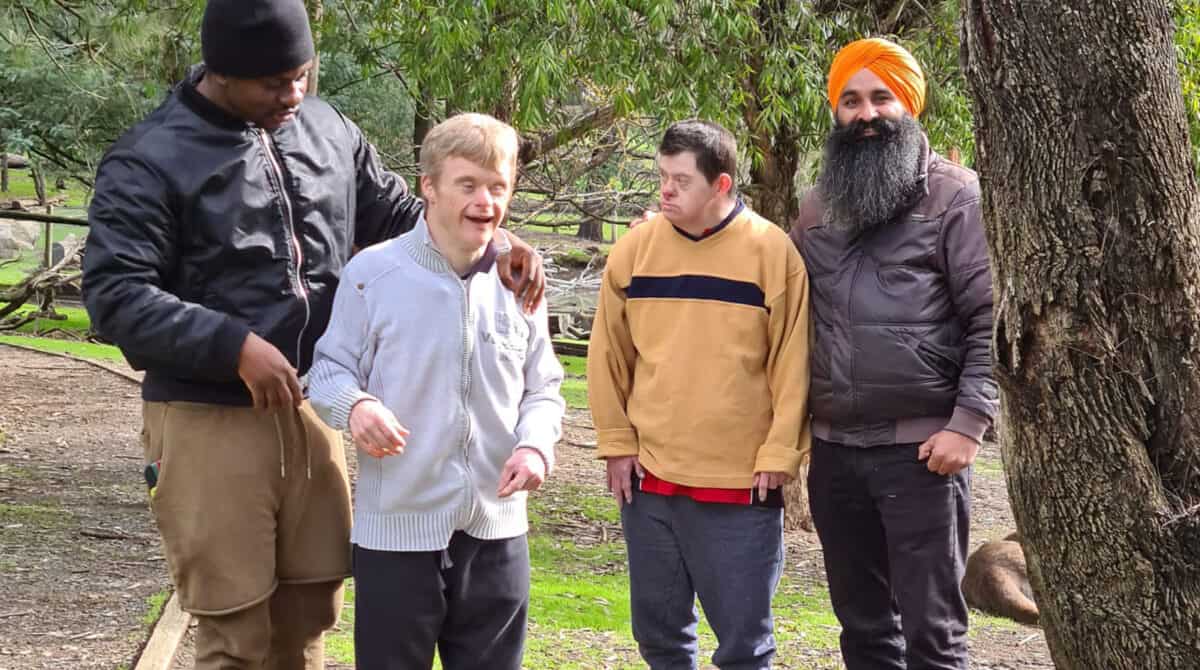[vc_row disable_element=”yes” css=”.vc_custom_1614769928793{padding-top: 100px !important;padding-bottom: 100px !important;background-image: url(https://nextt.com.au/wp-content/uploads/2020/08/main.jpg?id=1838) !important;background-position: center !important;background-repeat: no-repeat !important;background-size: cover !important;}”][vc_column][vc_custom_heading text=”Here’s what the 15 NDIS support categories2020 – 2021 can offer participants” font_container=”tag:h1|text_align:left|color:%23ffffff” use_theme_fonts=”yes” el_class=”here-be-what”][/vc_column][/vc_row][vc_row][vc_column width=”1/2″][vc_single_image image=”1386″ img_size=”full” alignment=”center”][/vc_column][vc_column width=”1/2″][vc_column_text]
When it comes to accessing NDIS funding, it’s important to know about the different NDIS support categories 2020 – 2021 and what kind of help they can offer participants.
There are 15 NDIS support categories in total, which are divided into three key areas: NDIS core supports, capital services, and capacity building activities. Here’s a brief overview of what supports and services they each cover.
[/vc_column_text][/vc_column][/vc_row][vc_row css=”.vc_custom_1603786002378{background-color: #f6f5f2 !important;}”][vc_column][vc_column_text]
a. Core Supports
The first batch of NDIS support categories 2020 – 2021are classified as core supports. These services assist NDIS participants in being able to complete daily living activities, as well as help them work towards their individual NDIS goals.
The NDIS core support categories are:
- Assistance with daily life: this category covers supports and services that help you with daily activities, such as assistance with household decision making, supervision within shared living arrangements, personal care and domestic help, as well as food services such as Meals on Wheels.
- Transport: this NDIS support category covers transport-based supports and services, such as specialised transport to school or work, as well as access to community activities and other recreational and vocational programs.
- Consumables: this category covers consumable products or services that help with daily activities, such as interpreting, translating, continence and home enteral nutrition services.
- Assistances with social and community participation: this NDIS support category enables participants to participate within social and community groups, such as accessing camps, art classes and other programs that help the participant work towards development goals.
[/vc_column_text][/vc_column][/vc_row][vc_row][vc_column][vc_column_text]
b. Capital
The second of the NDIS support categories2020 – 2021 is capital. These supports relate to any investments that NDIS participants need to make to assist them in daily life.
The NDIS capital support categories are:
- Assistive technology: this support category helps cover costs of assistive technologies, such as hearing aids and wheelchairs.
- Home modifications: this NDIS support category helps to cover costs associated with making homes more liveable and accessible for participants, such as adding stair climbers and guard rails.
[/vc_column_text][/vc_column][/vc_row][vc_row css=”.vc_custom_1603786688540{background-color: #f6f5f2 !important;}”][vc_column][vc_column_text]
c. Capacity Building
Most of the NDIS support categories 2020 – 2021 are classified as capacity building activities. This relates to any support or services that helps NDIS participants build skills that will enable them to live as independently as possible.
The capacity building NDIS support categories are:
- Coordination of supports: this support category covers the costs associated with NDIS support coordination, which allows participants to consult with NDIS support coordinators to create their individual NDIS plans.
- Improved living arrangements: this NDIS support category deals with accessing better living arrangements, including moving into group homes, individual accommodation support and assistance with achieving tenancy obligations.
- Increased social and community participation: this category provides access to a wide range of community programs, including childcare, peer support, fitness groups and respite services.
- Find a job: this NDIS support category provides support for participants to find employment, including employment preparation and work transition programs.
- Improved relationships: this category covers costs of programs that help participants build skills to improve their interpersonal relationships, including individualised social skill development programs or intensive behaviour intervention programs.
- Improved health and wellbeing: this NDIS support category helps participants improve their physical health through accessing fitness, physiotherapy and dietary services.
- Improved learning: this category aims to help participants become lifelong learners, and can include services such as school transition programs.
- Improved life choices: this NDIS support category aims to empower participants to make good life choices. It incorporates range of services including building organisational, managerial and financial skills.
- Improved daily living: this final NDIS support category covers other services and support that build participants’ life skills. These could include a variety of therapy services, such as early intervention programs, the Nextt Steps Programor occupational therapy.
[/vc_column_text][/vc_column][/vc_row][vc_row][vc_column][vc_column_text el_class=”bottom-text-box”]
As an NDIS-approved support coordinator and provider, Nextt can help you and your loved ones get the help you need. Call 1300 369 568 or send us a message to find out more about what Nextt services might be right for you.
[/vc_column_text][/vc_column][/vc_row]

